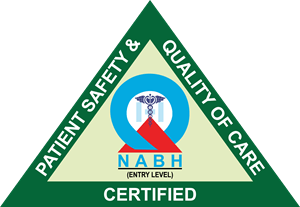Medication Management
What Is Medication Management ?
Medication management refers to the comprehensive process of overseeing and optimizing a patient's medication regimen. It involves a range of activities aimed at ensuring that medications are prescribed, dispensed, and used safely, effectively, and appropriately to achieve the best possible health outcomes.
Medication Review: Healthcare providers, including pharmacists and physicians, conduct a thorough review of the patient's current medication regimen. This includes prescription medications, over-the-counter drugs, herbal supplements, and vitamins. Medication Reconciliation: Ensuring accurate and up-to-date medication lists is crucial, especially during transitions of care (e.g., hospital discharge). Medication reconciliation involves comparing the patient's current medication list with their previous and newly prescribed medications to identify discrepancies and resolve any potential issues. Assessment of Medication Appropriateness: Healthcare providers assess whether each medication is appropriate for the patient's specific health condition, considering factors like diagnosis, age, weight, allergies, and potential drug interactions. Dose Adjustment: Medication management may involve adjusting the dosage of certain medications to achieve optimal therapeutic effects while minimizing side effects or potential harm. Drug-Drug Interactions: Healthcare providers evaluate potential interactions between different medications the patient is taking. This helps prevent harmful interactions that may reduce the effectiveness of one or more drugs or lead to adverse effects. Monitoring for Adverse Effects: Patients receiving long-term or high-risk medications are monitored for potential adverse effects. This includes routine assessment of vital signs, laboratory tests, and other indicators of medication safety.

What Is The Main Cause Of Medication Management ?
The main cause of medication management is to ensure that patients receive the most appropriate and effective medication therapy to achieve the best possible health outcomes. This process serves several important purposes in healthcare:
- Optimizing Treatment Efficacy: Medication management aims to ensure that patients receive medications that are most likely to be effective in treating their specific health conditions. This includes selecting the right drug, dosage, and administration route.
- Minimizing Adverse Effects: By carefully reviewing and monitoring a patient's medication regimen, healthcare providers can identify and address potential side effects or adverse reactions. This helps minimize harm to the patient.
- Preventing Drug Interactions: Medication management involves assessing potential interactions between different medications a patient is taking. This helps prevent harmful interactions that can reduce the effectiveness of one or more drugs or lead to adverse effects.
- Improving Medication Adherence: Effective medication management strategies are implemented to help patients adhere to their prescribed medication regimen. This includes providing clear instructions, addressing barriers to adherence, and using tools like pill organizers or reminders.
- Enhancing Patient Safety: Medication management practices are designed to ensure that patients receive the correct medications and dosages, reducing the risk of medication errors and related complications.
Preventing Medication-Related Problems: Through thorough medication reviews and assessments, healthcare providers can identify and address any concerns, questions, or misconceptions patients may have about their medications. This proactive approach helps prevent medication-related problems. Overall, medication management is a critical component of healthcare that aims to ensure safe, effective, and individualized medication therapy for patients. It plays a vital role in optimizing treatment outcomes and promoting patient well-being.
Clinical Services
Facilities
24 Hours Services



